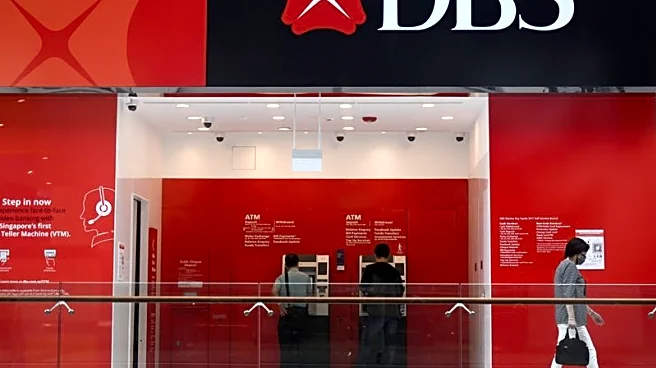What is the story about?
What's Happening?
A new report from Circana highlights a shift in self-care trends, moving away from performance-driven activities to small, daily moments that bring joy. This 'post-hustle' era of self-care emphasizes mindfulness and comfort, with consumers investing in home products like blenders and air purifiers. The trend also includes a rise in adult play, with games like Mahjong gaining popularity for their cognitive and social benefits. Additionally, functional skincare and emotional-companion tech are becoming integral to self-care routines. This shift reflects a broader lifestyle change as people seek balance and emotional well-being in their daily lives.
Why It's Important?
The evolving self-care landscape signifies a cultural shift towards prioritizing mental and emotional health over traditional performance metrics. This change could have significant implications for industries such as wellness, home goods, and technology, as consumer preferences drive demand for products that support a balanced lifestyle. The focus on mindfulness and comfort may lead to increased sales in home and personal care products, as well as innovations in emotional-companion technology. This trend also highlights the growing importance of mental health awareness and the need for products and services that cater to emotional well-being.
What's Next?
As the self-care trend continues to evolve, businesses may need to adapt their strategies to meet the changing demands of consumers. Companies could explore new product offerings that emphasize comfort and mindfulness, while also leveraging technology to enhance emotional well-being. The trend towards home-centric lifestyles may persist, influencing product development and marketing strategies across various industries. Additionally, there may be opportunities for collaboration between wellness brands and mental health professionals to create comprehensive self-care solutions.
Beyond the Headlines
The shift towards mindful self-care raises questions about the long-term impact on societal values and work-life balance. As more individuals prioritize emotional well-being, there may be broader cultural implications, such as changes in workplace expectations and the normalization of mental health discussions. This trend could also influence public policy, as governments and organizations recognize the importance of supporting mental health initiatives and creating environments that promote well-being.

















